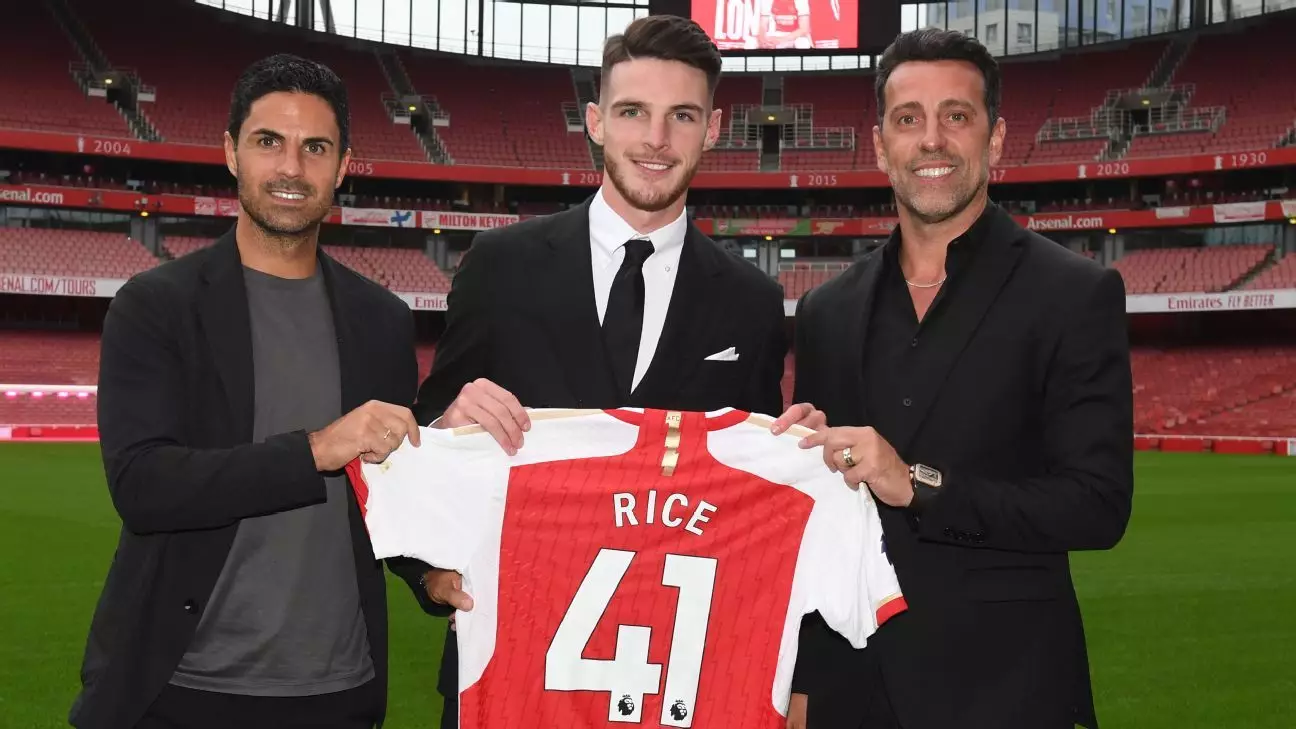In a move that has left many within Arsenal Football Club in shock, sporting director Edu Gaspar announced his resignation on a Monday morning just weeks after manager Mikel Arteta signed a new contract. This unexpected development raises questions about the stability of the club as it embarks on a challenging journey toward success. Edu, who had been a crucial figure in the club’s recent resurgence, now heads off to lead a multiclub model under Nottingham Forest owner Evangelos Marinakis. This article will explore the implications of his departure, the circumstances surrounding it, and what lies ahead for Arsenal.
Edu joined Arsenal in 2019, after an esteemed career spanning various roles, including technical director for the Brazil national team. His history as a player—marked by his participation in the iconic “Invincibles” squad—instilled a sense of trust and admiration amongst supporters. Initially tasked with adding sporting expertise after a challenging period post-Arsene Wenger, Edu’s early tenure was met with mixed reactions, particularly concerning his relationships with agents and some underwhelming transfer decisions. However, his strategic insight became evident as Arteta took charge.
Under the guidance of Arteta, the club underwent a transformative phase that saw drastic alterations to the squad. Edu’s backing facilitated the departure of nine first-team players, clearing the way for a rejuvenated team philosophy. His promotion to sporting director in November 2022 signaled not only recognition of his impact but also positioned him as a pivotal component in shaping both the men’s and women’s teams. His ability to blend charisma and operational efficiency made him a beloved figure across club departments, fostering a strong bond with Arteta, which was essential for reestablishing Arsenal’s core values.
Despite their strong working relationship, the news of Edu’s departure sent ripples through the club, leaving many to ponder how such a key figure could leave at a seemingly critical juncture. Reports indicate that interest in Edu from other organizations had been brewing prior to the recent shift. A fortuitous multimillion-pound offer proved too enticing, particularly one that promises a broader scope of responsibilities across multiple clubs, including Olympiacos and Rio Ave.
In the weeks leading to his resignation, discussions about his future escalated within Arsenal’s hierarchy. However, Edu skillfully kept his intentions under wraps, leading to genuine shock among club staff upon his exit announcement. Conversations surrounding his replacement are now rife with uncertainty, demonstrating the lack of a contingency plan for such an unforeseen departure. While Edu was central to Arsenal’s strategic outlook, his decision to leave was reportedly not mired in a power struggle, but rather an opportunity that presented itself with compelling financial incentives.
Edu’s exit signifies not just a loss of talent but also raises crucial questions about the club’s future. The legacy he leaves behind—several high-profile signings, a reinvigorated club culture, and an ambitious future blueprint—illuminates the daunting task ahead for his successor. Without a clear successor in mind, the management structure now faces an uncertain landscape, especially with the January transfer window on the horizon. An abrupt shift in leadership could disrupt the competitive standing and ambition that Arsenal has sought to reclaim over recent years.
In the interim, Arsenal’s football management unit, now comprised of Arteta, managing director Richard Garlick, and executive vice-chair Tim Lewis, alongside Edu’s former assistant Jason Ayto stepping up, will fill the void left by Edu. While Ayto has garnered praise for his role in player recruitment and scouting organization, the transition will no doubt bring challenges, particularly as the club seeks to maintain continuity in its strategies and ambitions.
As Arsenal prepares to navigate this pivotal transition, the absence of Edu creates a palpable void that could impact its quest for silverware and reclaiming its prestigious status among top clubs in Europe. While Arteta insists that the club’s excitement and vision remain intact, the dynamics of change pose risks. In football, instability can lead to missed opportunities and stalled progress, making the next moves critical for Arsenal’s future.
Time will reveal whether Edu’s departure marks an unfortunate blip in the club’s aspirations or signals the onset of deeper challenges. For now, Arsenal stands at a crossroads, having lost a club legend at a time when stability is essential. Maintaining momentum during this transformative phase is crucial, as any missteps may leave the Gunners feeling vulnerable at an inopportune moment in their ongoing journey.
